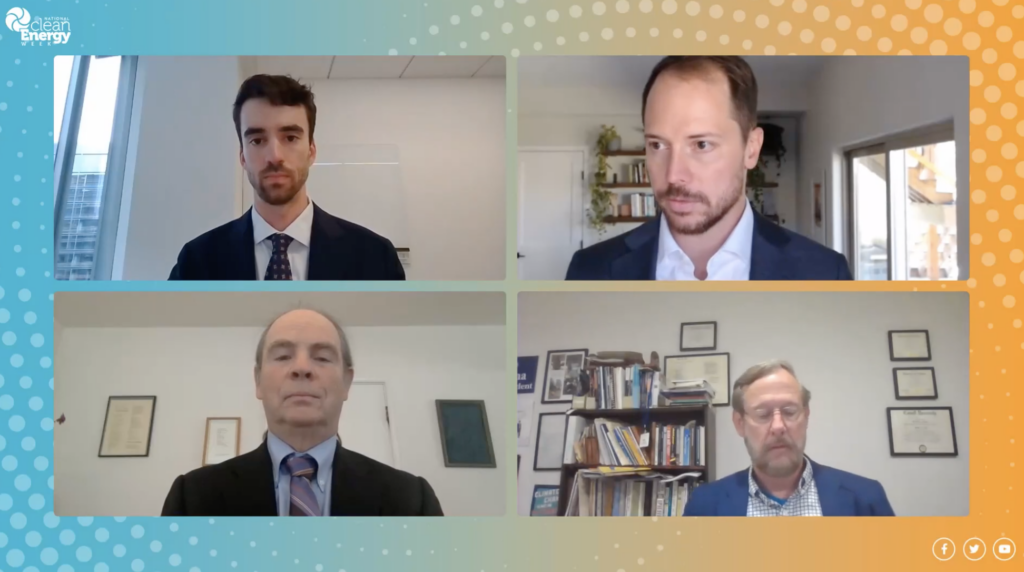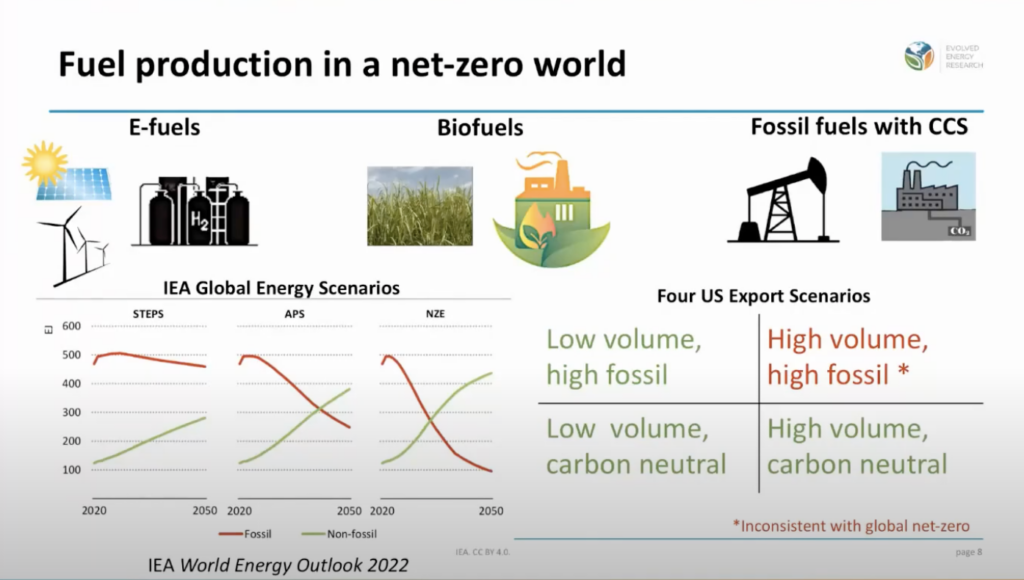Modeling Pathways to Net Zero: A Case Study on Energy Security as the U.S. Decarbonizes
The United States’ energy security has changed dramatically since U.S. imports peaked in 2007. As the U.S. continues to decarbonize and work towards net zero, many questions must be answered: At what pace and scale will the U.S. need to deploy clean energy technologies to achieve net zero emissions? How will this energy transition impact energy security and the country’s position today as a major energy exporter? What sources of uncertainty should policymakers and industry pay attention to in the coming years?
During the 7th Annual National Clean Energy Week Policymakers Symposium, a panel discussion featuring industry leaders from Evolved Energy Research, Breakthrough Energy, and the World Resources Institute sought to answer these questions.

David Paolella, manager of U.S. Policy and Advocacy at Breakthrough Energy, who moderated the panel, kicked things off by stating the panel’s purpose was to explore long-term future pathways for U.S. fuel production and export with the goal of understanding the energy security implications of domestic and global decarbonization policy.

Dr. Jim Williams, senior fellow at Evolved Energy Research, and Ryan Jones, cofounder of Evolved Energy Research, presented data they had been collecting on how four different scenarios will affect U.S. exports in the coming years. These scenarios are:
- Low-volume, high fossil fuels
- Low-volume, carbon-neutral
- High-volume, carbon-neutral
- High-volume, fossil fuels
Noting the fourth scenario is inconsistent with global net zero goals, the first three scenarios include a mixture of e-fuels (hydrogen, hydrocarbon, wind, etc.), biofuels, and fossil fuels. Dr. Williams and Jones stated that the data shows following any of the first three scenarios will enable the U.S. to achieve its decarbonization goals while remaining a top exporter.
“We see a lot of modeling on how the U.S. decarbonizes in a vacuum. It is fascinating to see these models of U.S. decarbonization interacting with global market trends,” said Paolella.
In the long-term, the volumes and composition of global energy trade will shift in a decarbonizing world. Electrification will reduce overall fossil fuel use. The U.S. must remain at the forefront of adopting zero-carbon practices to retain a competitive footing in the worldwide trade marketplace. As Dr. Williams pointed out, by reducing domestic fossil fuel consumption and adopting a fuel diversity approach, including zero-carbon fuels and zero-carbon electricity, the U.S. can improve its geopolitical position by increasing export potential while limiting U.S. exposure to oil price shocks and ensuring U.S. energy security
“Let’s not take our eye off the ball that we have already entered a period of very dangerous climate change, and we need to help move the entire globe toward low- or zero-carbon fuels and zero-carbon electricity,” said Karl Hausker of the World Resources Institute.
See the full panel recording here. To see other panels from National Clean Energy Week, like and subscribe on YouTube.
CRES Forum is the lead convener and a proud sponsor of National Clean Energy Week.